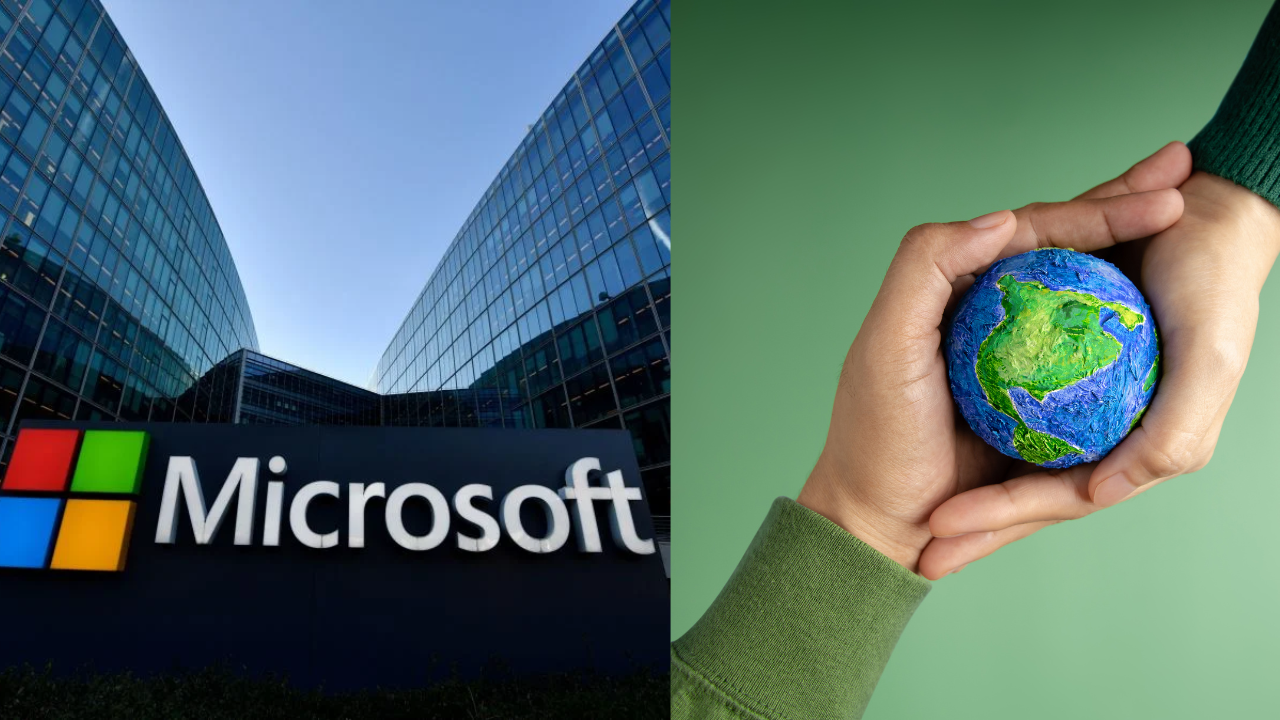Tech Giants Google and Microsoft Consume More Electricity Than 100 Countries in 2023

Google and Microsoft are known as the two biggest giants in the tech industry, and so is their energy consumption. A new study reveals the shocking fact that these two companies alone consumed 24 terawatt-hours (TWh) of electricity in 2023, surpassing the consumption of more than 100 countries, including nations like Iceland, Ghana, and the Dominican Republic.
Michael Thomas, a climate researcher, stated in his report that both Google and Microsoft consume the same amount of energy as Azerbaijan, with a GDP of $78.7 billion.
Additionally, TechRadar claimed that Google’s revenue was $307.4 billion in 2023, whereas Microsoft’s revenue was $211.9 billion.

To put this into perspective, nations like Iceland, Ghana, the Dominican Republic and Tunisia each consumed 19 terawatt-hours (TWh), whereas Jordan consumed 20 TWh. On the other hand, Libya and Slovakia used more electricity, 25 TWh and 26 TWh respectively.
The comparison between nations and two tech giants suggested how much electricity these two tech-giants consume, and has sparked questions around the environmental impact.
This massive energy consumption draws attention to the operations of Google and Microsoft, as their data centers, cloud computing services, and rise of AI (Artificial Intelligence) requires a lot of energy to fulfil the needs of millions of users worldwide.
The environmental impact
The vast energy consumption by these tech-giants raises questions about the environmental issues. However, both Microsoft and Google are aware of the situation and have taken steps towards sustainable practices. Google aims to be carbon free by 2030 whereas Microsoft aims to be carbon-neutral by 2030. Both the companies also invested in renewable energy or cleaner energy.
In 2023, Google again announced the continuous investment in cleaner energy and extended its investment in other renewable sources like wind and solar. On the other hand, Microsoft expanded its portfolio of renewable energy in 21 countries in the same year.
Looking at the current scenario, it is crucial for both these companies to take relevant steps to reduce their carbon emissions.

Other impacts
Not just power, these tech-giants are also consuming more water to cool down their data centres, raising questions over the environmental impact.
Microsoft increased its water consumption by 34 percent, followed by Google and Meta at 22 percent and 3 percent respectively in 2022 due to their increased use of data centres, as reported in the Financial Times.

The data centres necessary for processing Artificial Intelligence (AI) for tech giants Microsoft, Google and Open AI are numerous, with every five to 50 prompts consuming over 500 milliliters or water, in comparison to just half a milliliters for a basic google search.
Although, these companies are planning to replenish more water back into systems, than they consume by 2030. They plan to achieve this by investing in efficient energy irrigation systems or infrastructure and by restoring wetland ecosystems.
Moreover, these tech giants are also generating a lot of e-waste every year. According to the World Health Organization, approximately 53.6 million tons of e-waste were produced across the globe. However, only 17.4% was officially collected and recycled.
In 2024, Microsoft extended its security updates for Windows 10. If the company had not taken such initiatives, it would have resulted in 480 million kilograms of electronic waste which will be dumped in landfills globally.
Collaborative efforts towards sustainability
The world is constantly suffering from climate change issues and these major tech-giants are drawing attention due to their carbon gas emission at an unprecedented level. The UN Trade and Development Agency (UNCTAD) in their Digital Economy Report 2024 mentioned various examples regarding the rapid digitalization which are curbing the environment.
UN chief Antonio Guterres highlighted the fact that more dependency on digital tools will disturb the environment more in terms of water consumption, energy consumption, air pollution and e- waste.
He further added, “These impacts are worsened by emerging technologies such as AI (Artificial Intelligence)”.

It is high time that these tech-giants should take significant actions towards a sustainable environment. For instance, the International Organization for Standardization (ISO) is designing criteria for sustainable usage of Artificial Intelligence. This initiative is to fulfil Sustainable Development Goals (SDGs).
Also, the Singapore model can be a great help to ensure water sustainability by investing in water recycling services.




